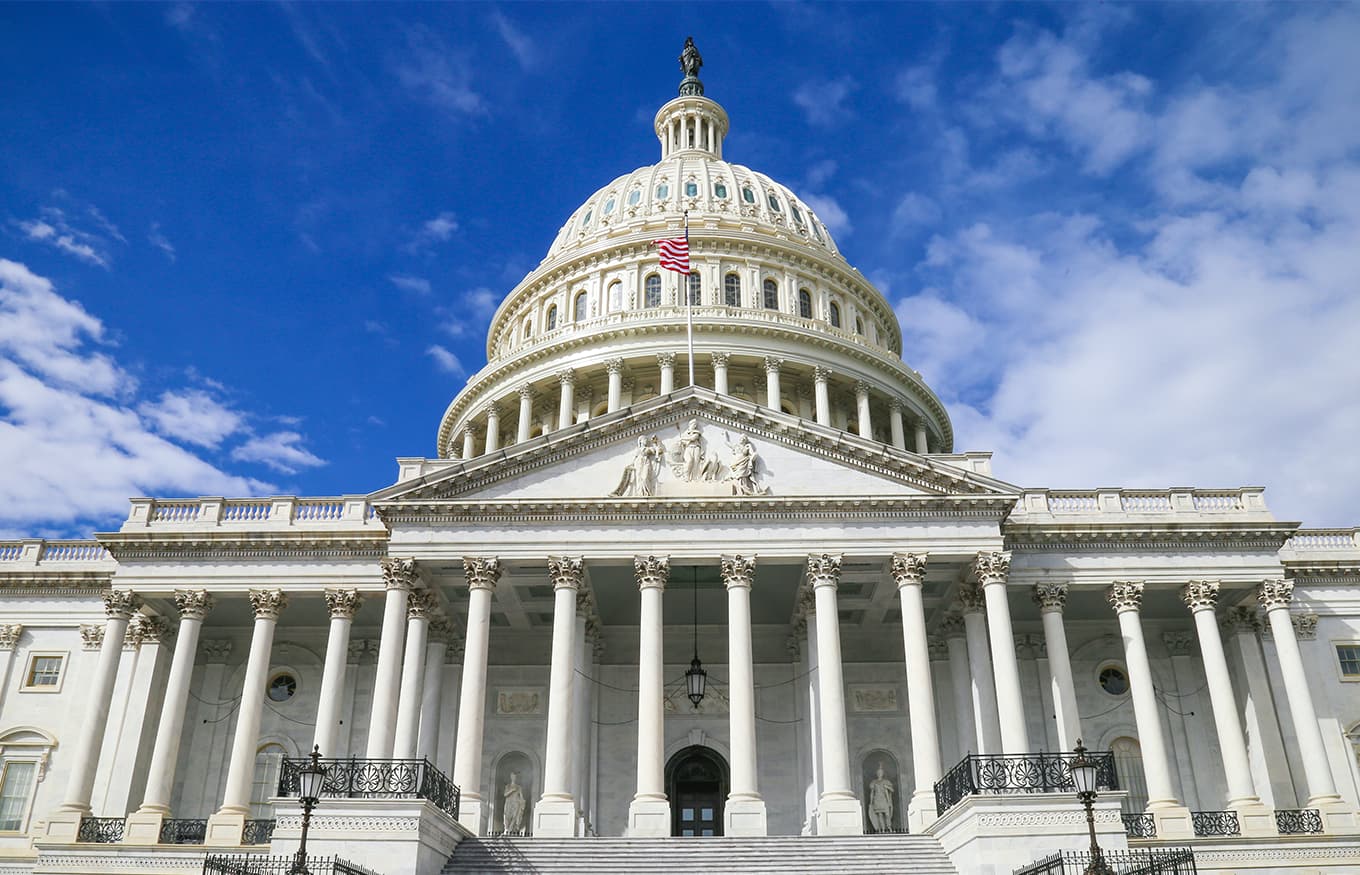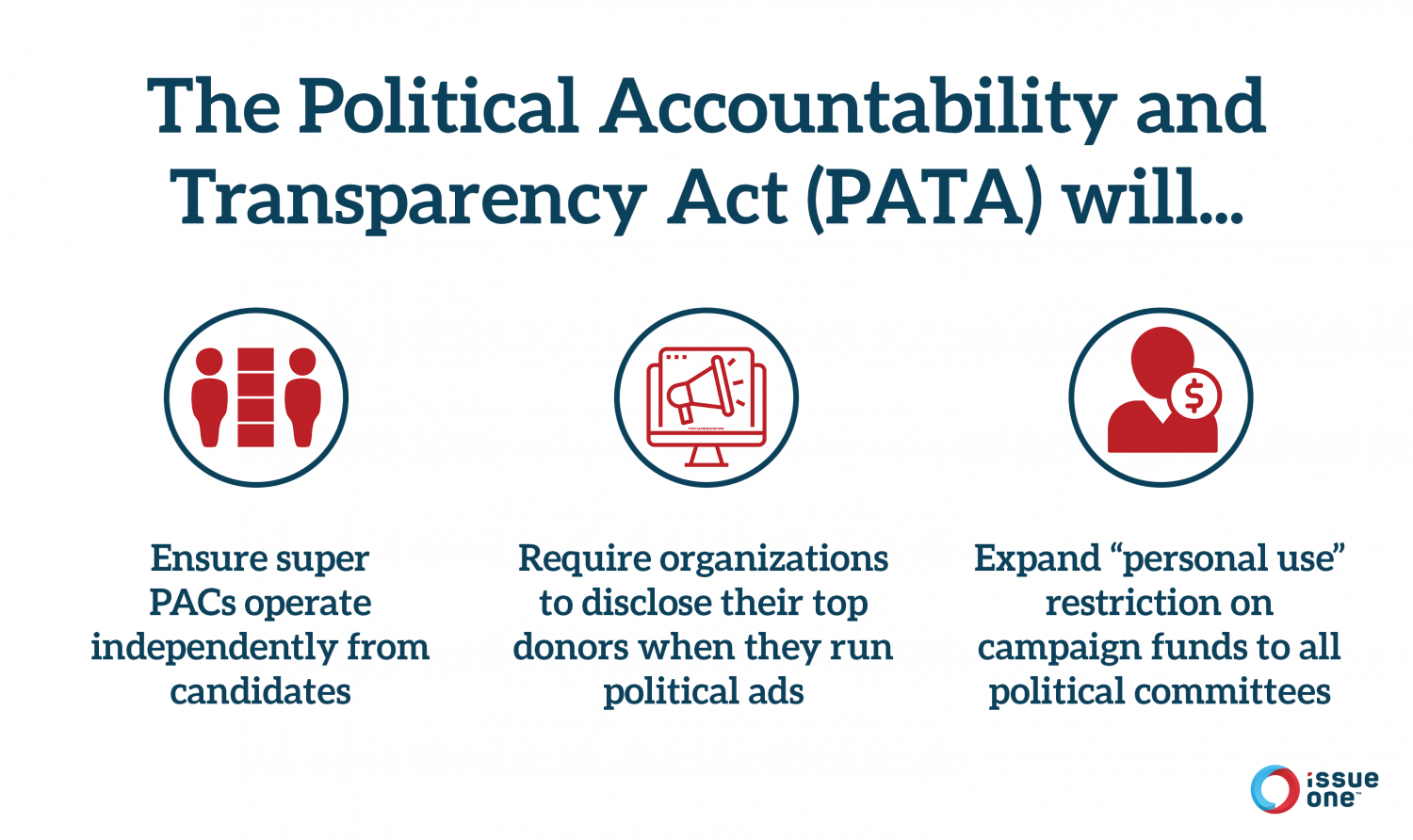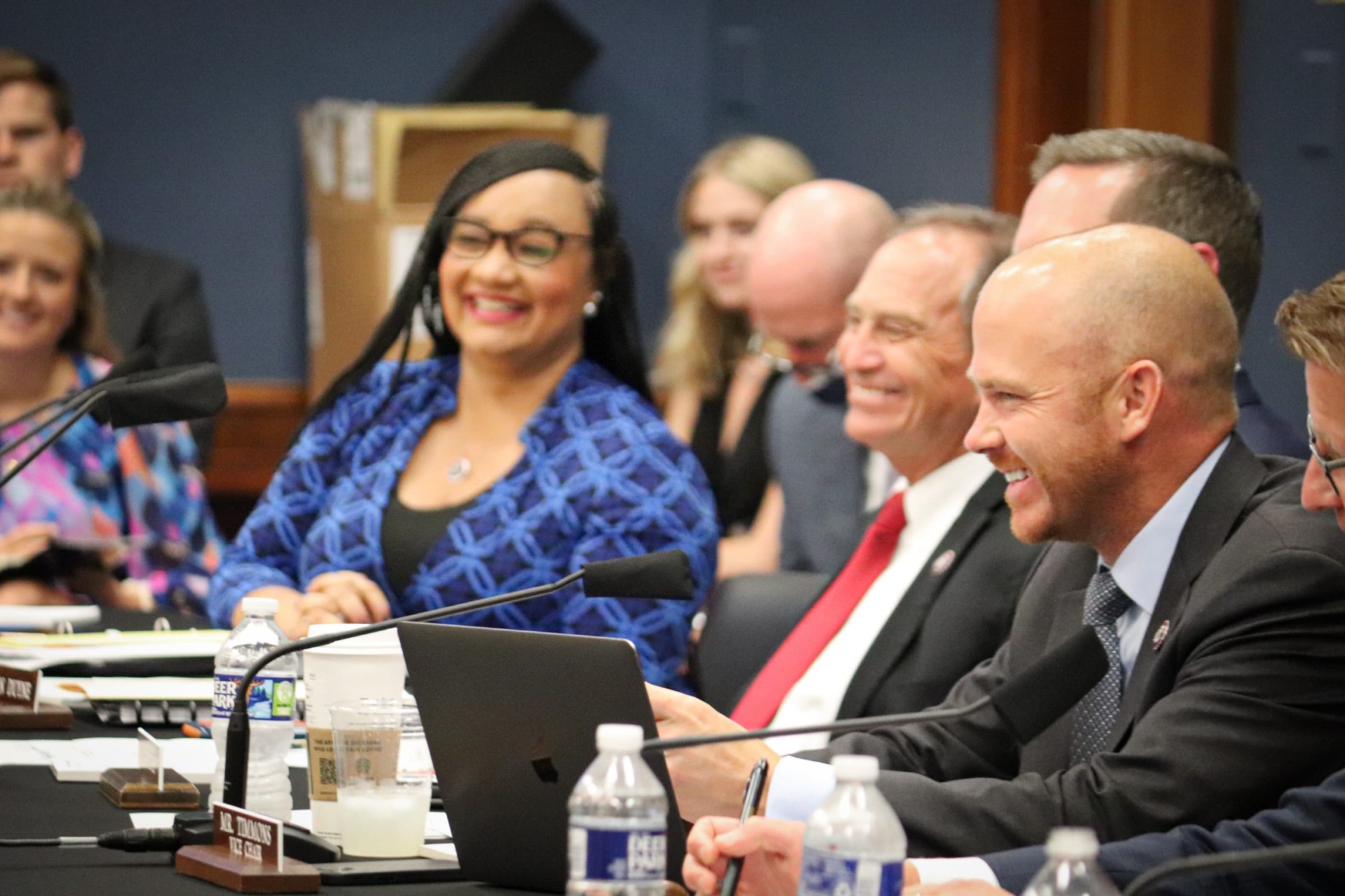Today, Representatives Kathleen Rice (D-NY), Mike Gallagher (R-WI), and Derek Kilmer (D-WA) introduced the Political Accountability and Transparency Act (PATA) to ensure the public knows who is trying to influence their vote in elections and to prevent lawmakers from abusing leadership PAC funds. These three lawmakers are also co-chairs of the Congressional Reformers Caucus.
“These lawmakers are demonstrating that Republicans and Democrats can work together to fix our broken political system,” said Issue One ReFormers Caucus Co-chair Rep. Zach Wamp (R-TN). “They are leading by example and putting the needs of the country, and their constituents, over their political ideologies. This is good policy and good politics.”
“This legislation closes some of the glaring loopholes in the campaign finance system that are being exploited by super PACs and dark money groups,” said Issue One Reformers Caucus Co-chair Amb. Tim Roemer (D-IN). “The American people believe the system is stacked against them by special interests. The Congressional ReFormers Caucus Co-chairs deserve recognition for listening to their constituents and working together to fix our broken political system.”
“We are pleased to see the leaders of the bipartisan Congressional Reformers Caucus put forward new ideas to help fix America’s broken political system,” said Issue One Executive Director Meredith McGehee. “The Political Accountability and Transparency Act addresses some of the most obvious flaws in federal campaign law that repeatedly frustrate members of Congress on both sides of the aisle.”
“Strengthening the law requiring independence of candidates from outside groups is critical to loosening the influence that megadonors who fund super PACs hold over candidates and officeholders,” said Trevor Potter, President of the Campaign Legal Center, and a former Republican Chairman of the Federal Election Commission. “Similarly, increasing political spending transparency and stopping politicians from using leadership PACs as slush funds are broadly popular bipartisan reforms. Voters have a right to know who is bankrolling campaign ads. And it would seem obvious that lawmakers shouldn’t be using donors’ PAC money to fund golf memberships, trips to five-star resorts, and Disney World vacations.”
For decades, the Supreme Court has overwhelmingly upheld the value of donor disclosure in our campaign finance system, including in the 2010 Citizens United decision. Writing for the majority in an 8-1 vote, Justice Anthony Kennedy stated about disclosure and disclaimer provisions in the decision, “Those mechanisms provide information to the electorate. The resulting transparency enables the electorate to make informed decisions and give proper weight to different speakers and different messages.”
More than $800 million in dark money has been spent in elections since the Citizens United decision — and as Issue One’s research revealed, over 75 percent of that dark money has been spent by just 15 organizations. Meanwhile, the true sources of these funds remain unknown to voters until well after election day, if their identities become public at all. At the same time, super PACs must by law remain independent of candidates but often only pay lip service to this requirement.
The Political Accountability and Transparency Act will help better equip the public with the information they deserve to know when making choices about candidates and elections by:
- Stopping flagrant abuse of campaign finance restrictions by strengthening coordination rules so super PACs truly operate independently from candidates for office
- Requiring political advertisements to disclose the top donors to the organization paying for the advertisements
- Prohibiting politicians from abusing leadership PAC funds for their personal gain by clarifying that the “personal use” restriction on campaign funds applies to all political committees, including leadership PACs. Issue One and the Campaign Legal Center revealed widespread abuse of leadership PACs by members of Congress increasingly using the funds for five-star dinners, high-end vacations and country club memberships, all under the guise of “fundraising expenses.”
Issue One is the leading cross-partisan political reform group in Washington. We unite Republicans, Democrats, and independents in the movement to increase transparency, strengthen ethics and accountability, and reduce the role of big money in politics. Issue One’s ReFormers Caucus of more than 200 former members of Congress, governors, and Cabinet officials is the largest bipartisan coalition of its kind ever assembled to advocate for solutions to fix our broken political system.






